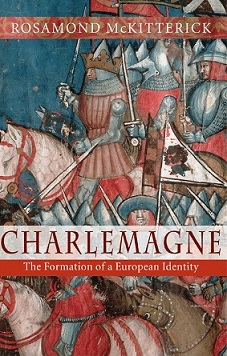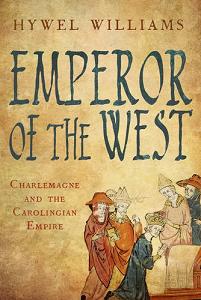
Charlemagne: the Formation of a European Identity
Rosamond McKitterick
460 pages including index
published in 2008
I knew Rosamond McKitterick from the volume in the Short Oxford History of Europe series she edited, which is why I picked up Charlemagne: the Formation of a European Identity from the library. Charlemagne himself has only relatively recently picked my interest, mostly through having read Emperor of the West a few years back. Interest in Charlemagne in general has rather picked up in the past decade, as the search for a common pan-European identity has taken on obvious political significance, what with the EU and all.
Which is where this comes in, as Rosamond McKitterick attempts to get back to contemporary sources to re-evaluate Charlemagne and his reign, without the interpretations later historians have given them. Her goal is to in this way provide a new critical understanding of what these sources tell us about the development of the Carolingian empire, its political identity and how these changed during Charlemagne’s reign. It makes Charlemagne a heavily text orientated history, as McKitterick examines the narrative representations of Charlemagne produced during his lifetime and shortly after. To be honest, at times this made it heavy going, especially when I read most of it during the morning and afternoon commute.
